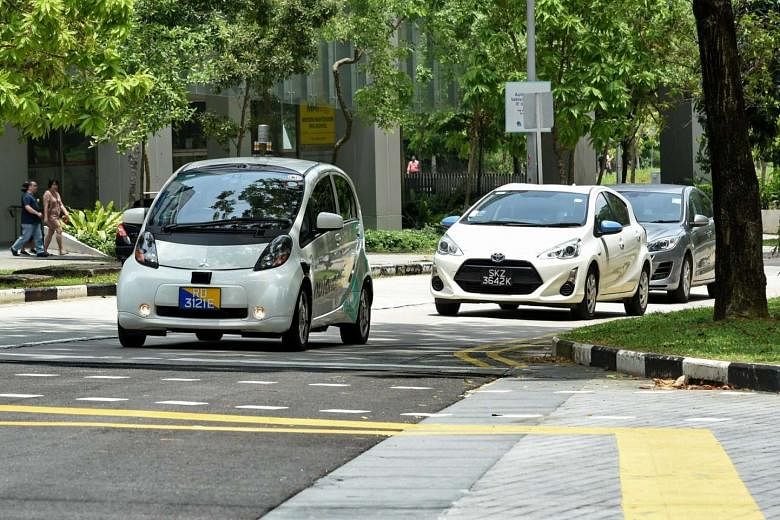With the introduction of driverless taxis, it is not hard to imagine that cab drivers' jobs will be further disrupted ("World's first driverless taxi trial kicks off in Singapore"; Aug 26).
It is also not implausible that many other jobs will be disrupted and performed by robots.
These robots will be connected to the Internet and may be capable of doing jobs at different places 24/7. The technology for developing such robots is already available and will become more effective and faster.
How, then, should our people respond to the disruptive future? How can they become pioneers of change?
Developing a culture for producing changemakers starts from a young age, and at all levels of formal education and stages of lifelong learning.
Research shows that to survive and succeed in the new economy, we need to train our people to become self-directed learners.
They will need to have a fluid intelligence with divergent and critical thinking skills. They will have to know how to join the dots or create and join the right dots to become problem-solvers and solution-providers.
From the start of the formal education process, we need to encourage our people to take calculated risks to explore new frontiers, even if they may have to crush their emotions and bruise their bodies to achieve radical breakthroughs.
They need to go beyond learning academic knowledge to cultivate the capacity and capability for creative and innovative results.
They have to develop 21st century skills, including ability, agility and tenacity, to become the disrupter and not the disrupted.
We must continue to build open, digital and dynamic systems that will help us interpret trends, evaluate the impact of new and emerging developments, and leverage changes to our advantage.
We need to look at what technology cannot do or cannot do as well, so that we can fill in these gaps to add value to our jobs and contributions.
For example, while technology can help to generate information, we still have to make sense of the volume, variety and velocity of the information for our work and life.
We can also add value to high tech by providing "high touch", with services that will win hearts and cultivate a passion for work.
Patrick Liew Siow Gian (Dr)

